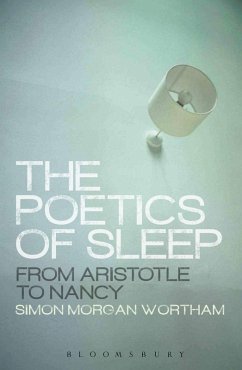To what extent does sleep constitute a limit for the philosophical imagination? Why does it recur throughout philosophy? What is at issue in the repeated relegation of sleep to the realm of physiological study (as in Kant, Freud and Bergson), in favour of promoting the critical investigation of dreams and dreaming as a key indicator of modernity? Does philosophy entail a certain repression of the poetics of sleep in all its conceptual impossibility?
Through a series of engagements with key thinkers in modern European philosophy, this book rearticulates a poetics of sleep at the heart of some of its seminal texts. From the problematic yet instructive status of a Kantian discourse on sleep to the conceptual contradictions inherent in psychoanalytic thought and the rich possibilities of thinking 'sleep' in the writings of Bergson, Blanchot and Nancy, the book's aim is to dredge the remains of sleep - not to bring its secrets to the surface of waking life, but instead to draw closer to what falls under or away in thinking and writing 'sleep'.
Through a series of engagements with key thinkers in modern European philosophy, this book rearticulates a poetics of sleep at the heart of some of its seminal texts. From the problematic yet instructive status of a Kantian discourse on sleep to the conceptual contradictions inherent in psychoanalytic thought and the rich possibilities of thinking 'sleep' in the writings of Bergson, Blanchot and Nancy, the book's aim is to dredge the remains of sleep - not to bring its secrets to the surface of waking life, but instead to draw closer to what falls under or away in thinking and writing 'sleep'.


